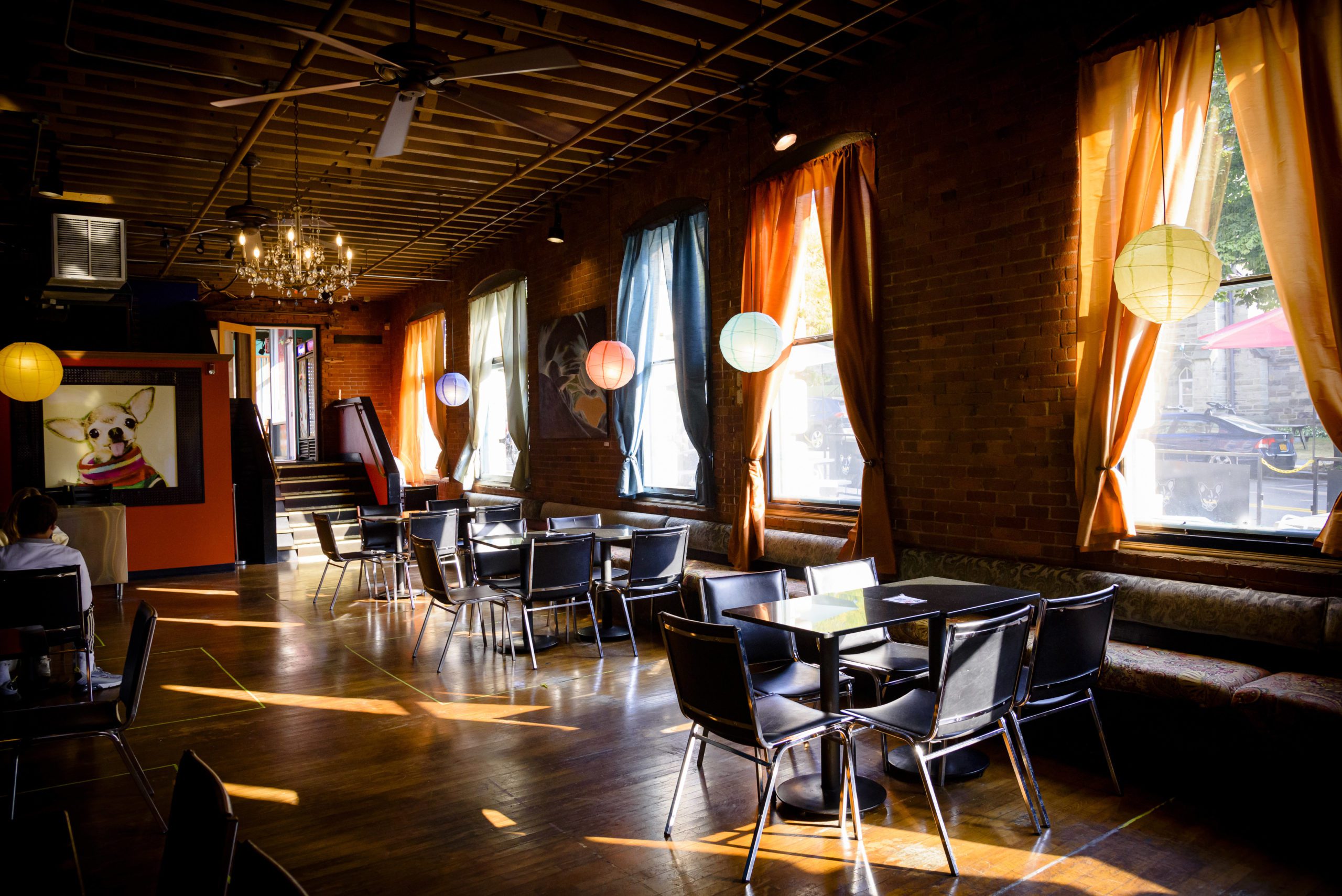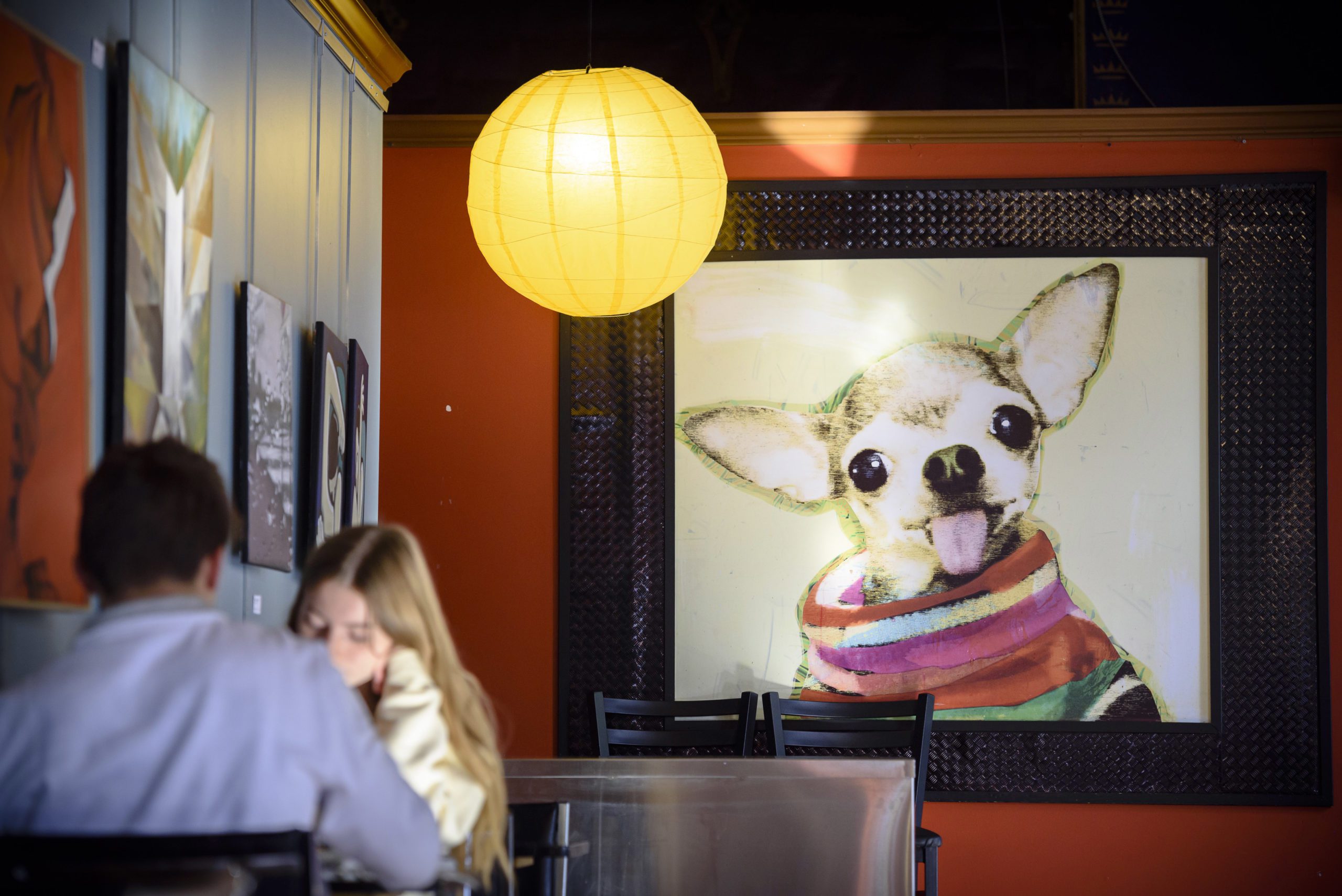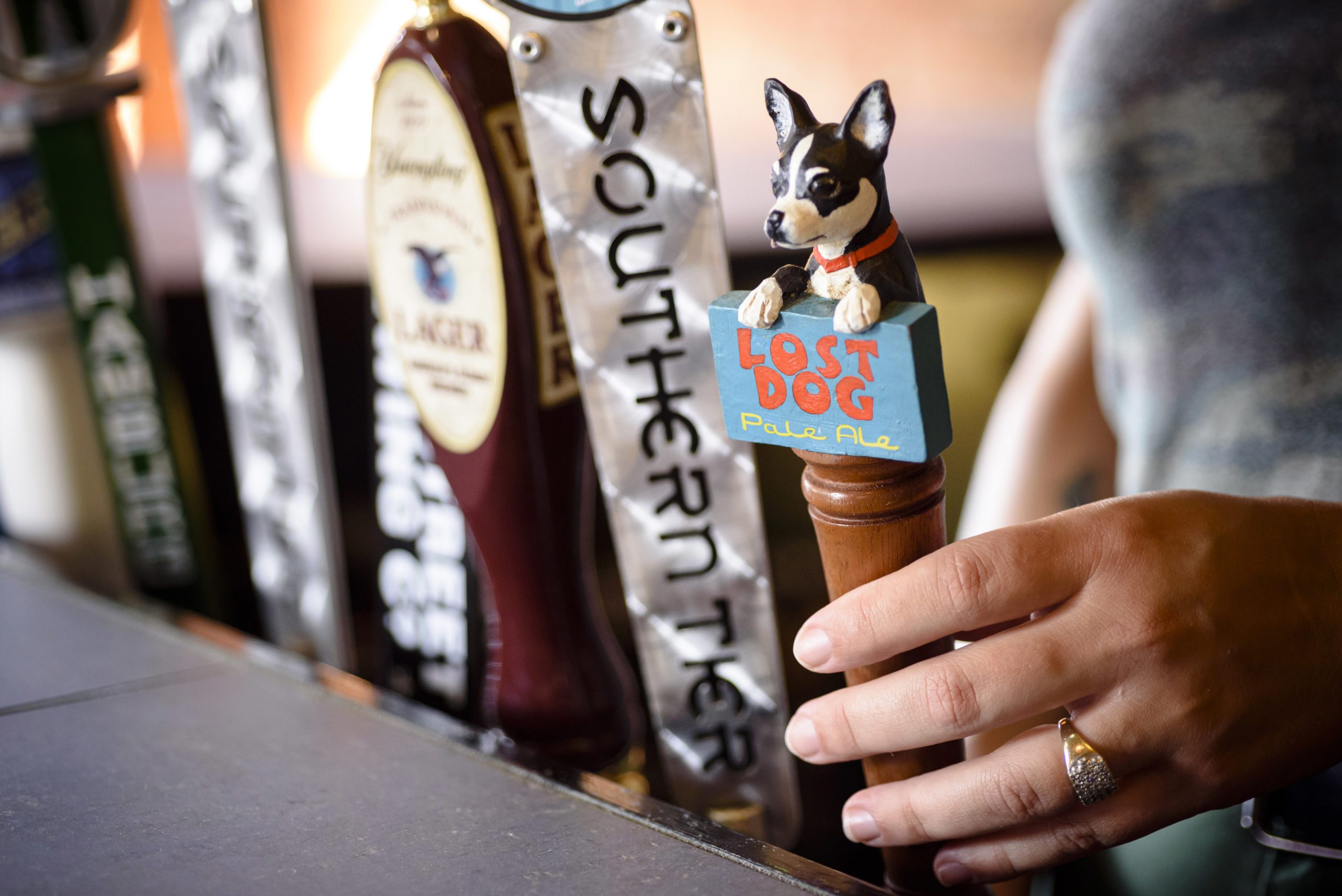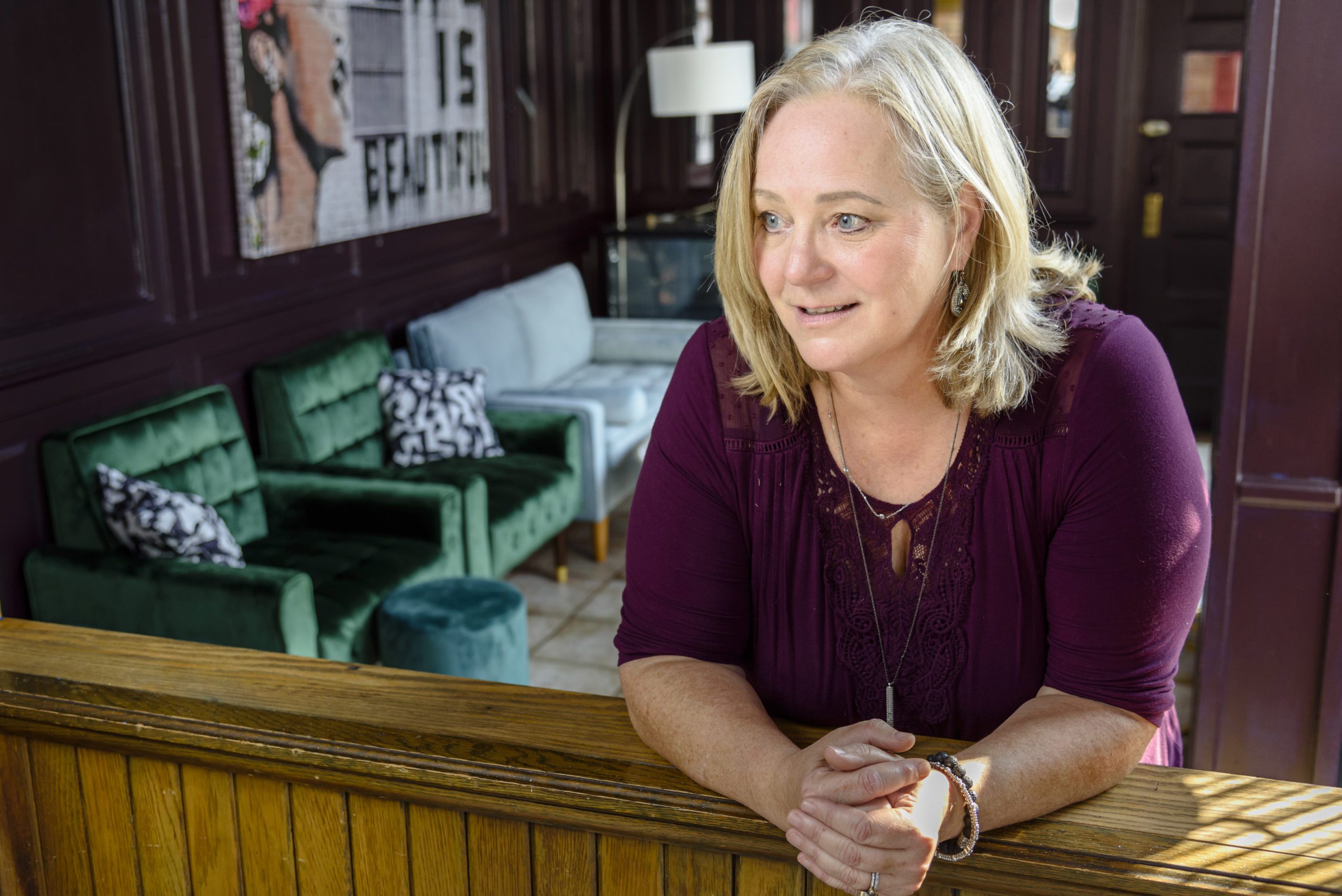Eatery Found an Audience and Established a Scene
The bank said “no.” They, like many others, were of the opinion that downtown Binghamton was dead. Why would someone even consider opening a restaurant there? Marie McKenna and Elizabeth Hughes asked “why not?”
“I was surprised that people came down here,” Hughes says. “There were a few times in the beginning where it was just packed out there and I was in the kitchen and I would come outside to get something. I would walk behind the wall and just get choked up to see that people were willing to come downtown and kind of prove ‘You’re wrong – it’s not dead.’”
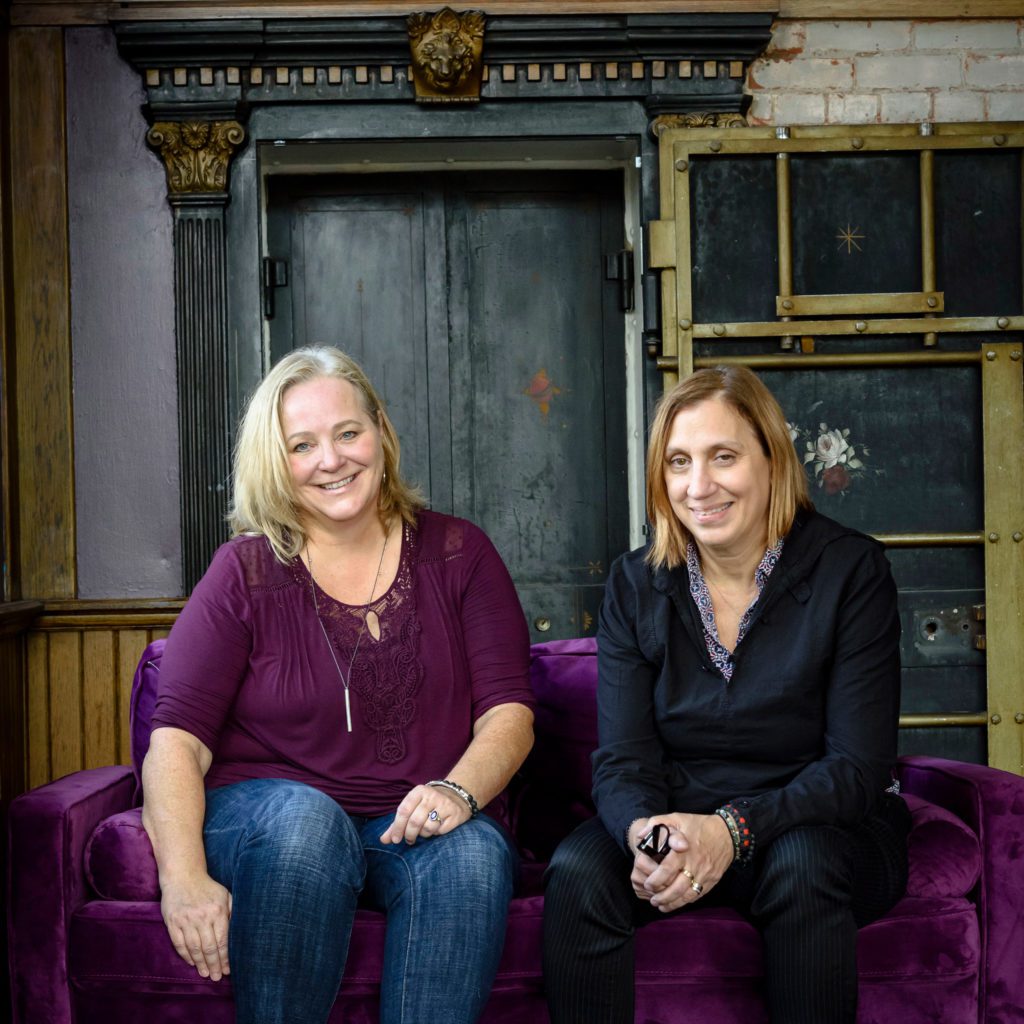
Co-Founders McKenna and Hughes were familiar with achieving their dreams. They had, after all, took their love of music from Binghamton to New York City, where they performed as The Derangelles for many years. They lived the typical starving rock band lifestyle, oftentimes making ends meet as wait staff.
“A lot of times we would work in restaurants and I realized that it was something I really loved. I love the idea of bringing people together,” McKenna says. “After I moved back, we really missed having fun, cool places to just hang out with your friends – just kind of the coffeehouse vibe.”
In the BING tradition of creativity, they turned an old auto garage into an eatery before the downtown opportunity came up. That opportunity came in the form of a long-vacant factory born in the 1800s, when Binghamton was one of the largest cigar producers in the country.
Whether you’re a restaurateur, artist or entrepreneur, Binghamton is a place that allows you to grow thanks to good bones, affordable space and a supportive community Lost Dog is proud to be a part of.
The city has a bootstrap mentality that lends itself to renewal. “This is a place where people say, ‘I really want this to happen, I really have a vision, I’m going to make it work,’” Hughes says.
Many have followed in Lost Dog’s footsteps. Binghamton now supports a legit culinary scene. They’re not so much competitors as partners.
“Over the years, we’ve been really thrilled to see other people decide to open restaurants because we’re of the belief the more restaurants there are, the more scene there is here,” McKenna says. “It’s also more fun to live in a town that has lots of good restaurants to go out to eat at.”
“There are so many interesting places. We’re influenced by so many different ethnicities,” she says.
Tens of thousands of immigrants flooded the “Valley of Opportunity,” home to Endicott-Johnson Shoes and IBM, in the early 20th century and brought with them tastes of home. It’s had a massive impact on BING culture and, of course, food. Food – and its ability to bring people together – is what it came down to for McKenna and Hughes.
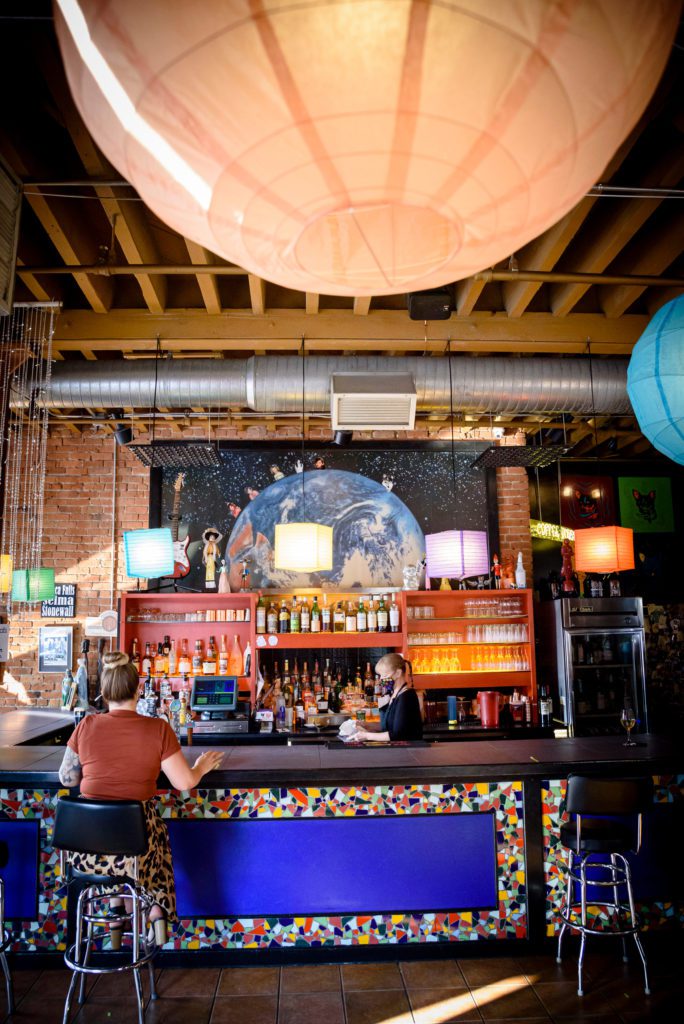
“I knew how to cook, I knew how to eat and I also knew what I loved in New York City,” Hughes says.
That NYC inspiration didn’t stop at the dishes. Hughes describes the décor at Lost Dog as an “eclectic mess.” Fun and funky decorations and art all have some type of meaning.
“We had no master plan, it was like let’s create a place where people felt really comfortable, where it felt like home to them,” McKenna says.
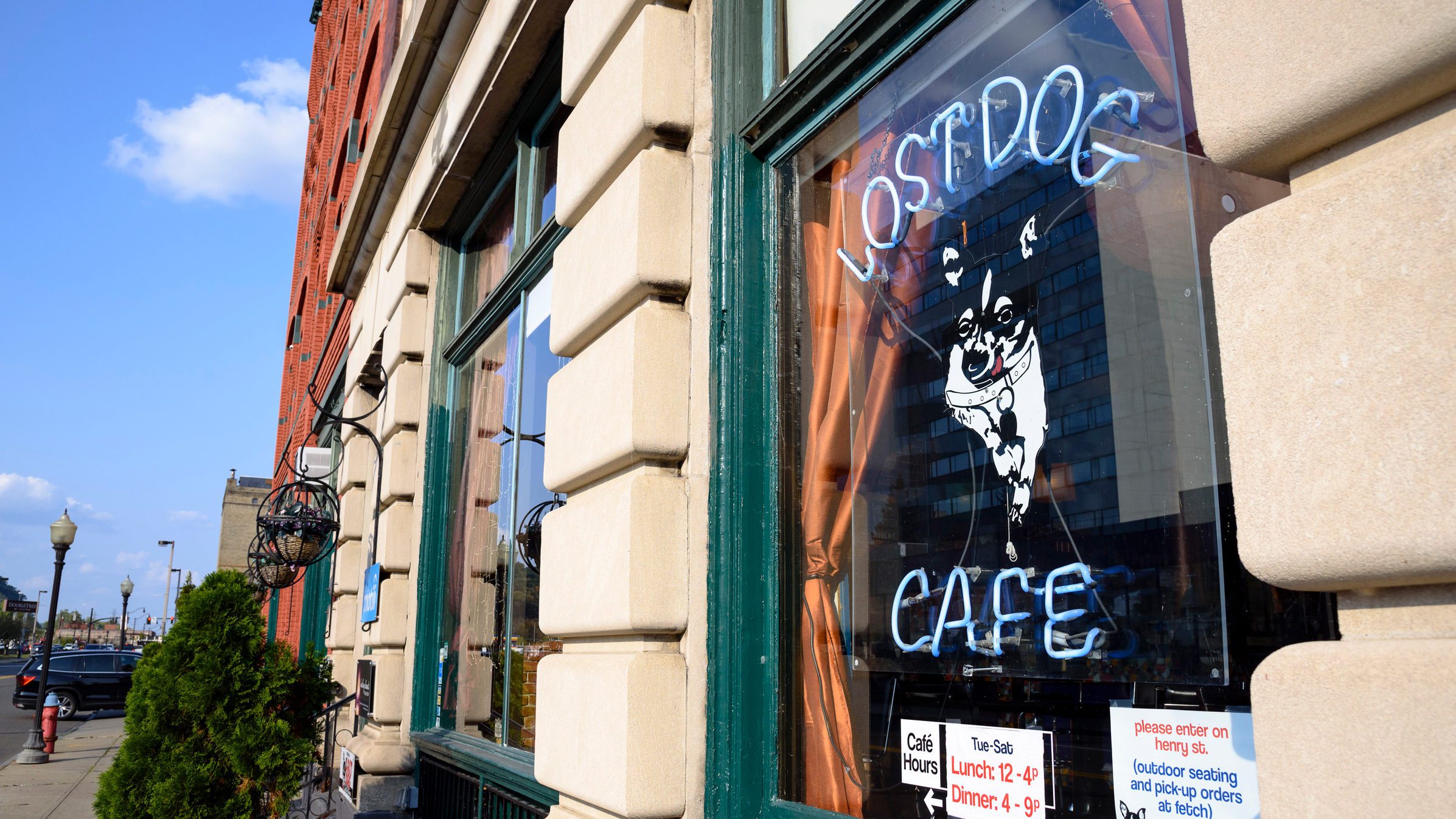
The name is thanks to Hughes’ chihuahua named Clarese that had a penchant for getting lost for days at a time. The “LOST DOG” posters sparked the idea for the restaurant’s name, which is now regarded as a charter member of the downtown eating scene.
Lost Dog was a founding partner of the Eat Bing collective that runs the popular annual Restaurant Week and Martini Walk. They make it a priority to lend plenty of support to other community events and initiatives as well.
“This is not just a money-making vehicle for us. We care about everybody, we care about the community, we care about our staff,” McKenna says. “We want to feel good about what we do.”
That’s something that hasn’t changed as the café enters its third decade at the corner of Water and Henry streets in downtown Binghamton. “It’s remained true to its roots. It’s still got a soul,” Hughes says.

